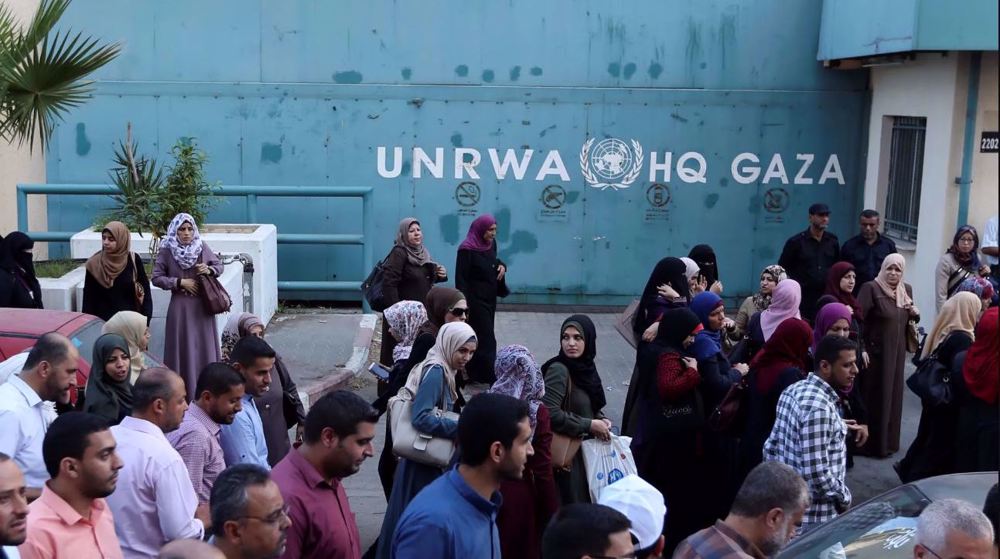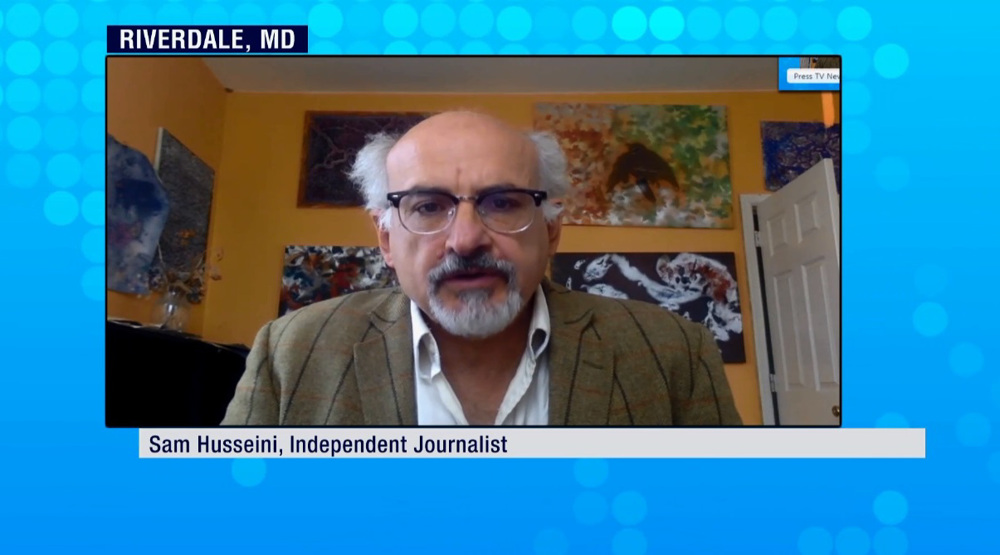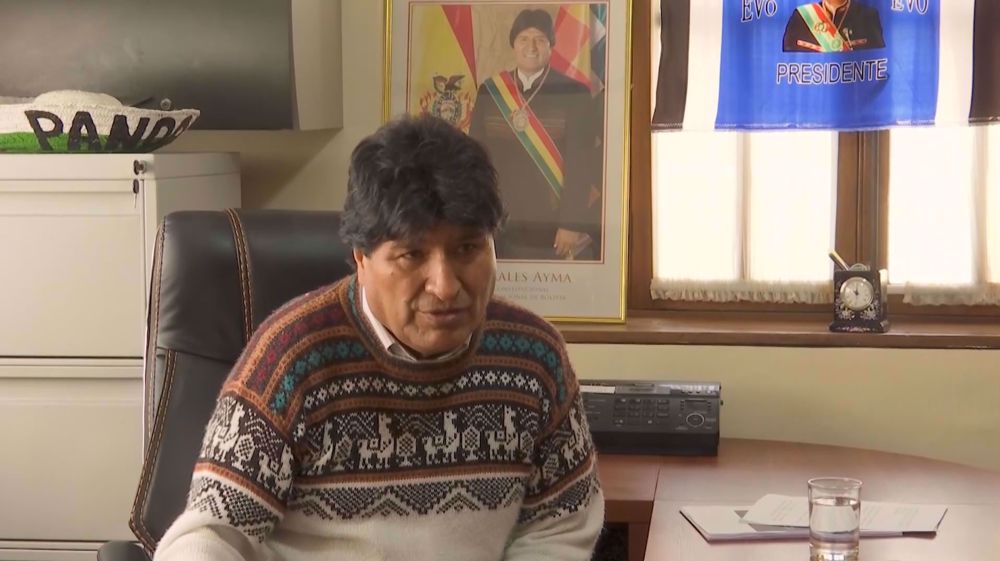US has to accept Iran nuclear rights: Marandi
Press TV has conducted an interview with Michal Lane, expert at the American Institute for Foreign Policy from Washington, and Mohammad Marandi, professor at the University of Tehran, to discuss the New Year address by Leader of the Islamic Revolution Ayatollah Seyyed Ali Khamenei on the ongoing nuclear talks between Iran and the P5+1.
The following is an approximate transcript of the interview.
Press TV: Ayatollah Khamenei pointed out that the US says Iran must sign a deal and Washington will monitor Tehran’s behavior and decide whether it will remove the sanctions or not, and he said that this would not happen and that the total removal of the sanctions is necessary. Do you think the comments or the perspective by the US regarding sanctions is being condescending towards Iran?
Lane: This is wonderful political theater from my point of view. President Obama as Ayatollah [Khamenei] pointed out today in his New Year’s speech … President Obama needs this deal more than Iran needs this deal or at least so President Obama believes that he needs this deal more than Iran needs this deal. He is bending over backwards. He is doing everything he can to make sure that the negotiations will ultimately be successful. He’s got the glitch at this point, which is the disposition of the sanctions, the sanctions have been eased during the discussions, but when a framework is reached the question is what becomes of the sanctions then.
Obama has two problems; the first is that the UN has one set of sanctions which he can probably make go away French iridescence on that. I don’t believe French will stand up to the P5+1 on that, they will ultimately cave and the UN will probably endorse the deal that removes those sanctions. The second part, of course, is the United States’ congressionally imposed sanctions which are a horse of an entirely different color. Obama doesn’t have the authority to get rid of them without congressional approval in fact by the middle of the next month by the middle of April Congress is going to vote on whether or not they will require congressional approval of the overall deal.
Congress is looking at this agreement whatever it becomes as a treaty, which would require according to our constitution the advice and consent of United States Senate for the president to enter into that treaty. On the other hand, President Obama is calling it not a treaty but an executive agreement. In the short run, President Obama is likely to win because he can call it whatever he wants, he can ignore the Senate in the short run and whether or not he gets congressional approval will be irrelevant mostly for the rest of his administration.
However, I think that the letter to [Iran] that was released publicly by the 47 Republican senators is very true, which is that once Obama is out of office in another 21 months there is a lot of leeway for any coming president and for any congressional action, and in consent with president to take action such as they choose to.
Press TV: Dr.Marandi, Your take. Do you think there’s a condescending type of attitude Washington [has] towards Tehran when you look at the way that many things are being framed and also looking at what our guest just said in Washington DC. If it is the case that the Congress could rescind any agreement in less than two years, why do it? from the perspective of Tehran?
Marandi : The United State is condescending towards almost every other country in the world, and that is a major problem that the United State has, and it’s one of the key problems that has prevented the United States and the Islamic Republic of Iran from achieving any form of rapprochement during the past three and a half decades. The Iranians have always said that the major problem that the United State has is that it fails to treat other countries, including Iran, as an equal. And I think now, the United States is beginning to feel that is paying heavy price whether it’s been in Europe, in Ukraine or in this region, in Iraq, Syria, Yemen, North Africa as well as in East Asia as its rivalry with China intensifies.
But the important point really for Iran is that that there are two key issues that were both touched upon by Ayatollah Khamenei today that any agreement between Iran and the P5+1 must mean that all sanctions must be removed immediately and those will include the UN Security Council’s sanctions and the sanctions imposed by the United States through congressional approval.
And the second point is that while Iran is willing to be open to slow down …the growth of its peaceful nuclear program ultimately, after agreed upon a period of time Iran’s nuclear program, must to go back to normal. In other words, Iran must have all the rights that are given to it in accordance with international law and the NPT. The United States has to accept that. Iran is not going to cross those two redlines because they deal with Iran’s sovereignty and Iranian dignity.
Iranians know that the United States needs the deal. It’s not the Obama deal. The United States needs the deal in this period. The United States is in a major trouble in its confrontation with Russia. It made a big mistake by supporting a coup in Ukraine, thought the Russians would surrender. They didn’t. The United States is increasingly finding itself in a confrontational position with China and the United States and its allies have basically destroyed East Asia, North Africa by supporting extremist organizations in Libya, in Syria and this has led to devastation in Iraq, and of course, now Yemen especially.
The Saudis are increasing their funding for al-Qaeda in Yemen in order to confront the Ansarullah and its allies. So the United Stated has made a huge mess and it really needs Iran, because Iran is the single most important country in the region, and it is the most able country in the region and it is basically holding back the extremists.
Press TV: What about that Mr. Lane? what Mr. Marandi has just said that it is actually the United States that needs this deal?
Lane: First of all, I agree with the professor that United States foreign policy in the region and globally, he pointed out. Our relations with Russia, relations with China, I could go on and on. There is no doubt that our foreign affairs are in tremendous disarray and that everyone is having trouble really figuring out what the Obama doctrine would be as he conducts foreign policy. So he makes a very valet point there. Let’s confine ourselves for the sake of discussion here only to the Middle East.
You know, Ayatollah [Khamenei] expressed today that he was not interested in talking about the regional issues with the United States, that Iran was a leader in the region and would stay a leader in the region and is not going to accommodate United States’ interests as we move forward. I certainly understand why he would say that. I would think that President Obama would disagree with that, and the reason President Obama disagress with that is because all those both sides are looking for stability and peace. The United States is looking for stability according to our terms and Iran would be looking for stability according to its term, so it’s a basic disconnect right there.
Press TV: Stability according to the US’ term. Can you define that for me especially in dealing with the Middle East?
Lane: Well the United States’ perspective of stability in the Middle East would be a continuation of stable forms of governments that the United States would be a key influential player in the region, that would allow us to see to our goals and objectives and what we consider to be our national interest, which is extremely good and reliable commercial ties with energy producing states in the region that’s what we are looking for.
Press TV: Can you name one country, Sir? I mean give me an example in the Middle East.
Lane: I think the United States would say that our allies in the area are probably stable as they’re going to be, I would include Saudi Arabia, I would include Jordan, I would include Bahrain, the United Arab Emirates and countries such as that.
Press TV: Do you think that is part of the problem? what Mr. Lane has talked about that one is actually a definition of stability, when you name a country for example a country like Saudi Arabia being stable, and then on the other hand, a country like Iran is actually considered a rogue state by the United States. Is it the problem in definition to begin with?
Marandi: I think that the reason behind the statements that Iran is unwilling to speak to the United States about anything beyond the nuclear program and the nuclear dossier is because Iranians are saying if the United States wants to deal with Iran in the region, first it has to solve the nuclear issue. The United States is trying to strangle the Iranian economy, it is trying to make ordinary Iranians suffer to sanctions and it can’t expect Iran to cooperate at any level with the United States unless this issue is resolved.
So I don’t think it’s simply because Iran is unwilling to speak to the United States because it is the United States. Iran speaks with a host of different countries about regional as well as international issues, so I think this is the key issue for the Iranians this is the lead mistrust. If the Americans really want serious discussions with Iran, first this issue has to be resolved and then the two sides can probably move on to other issues.
But the major problem in the region is exactly the fact that the United States is relying upon regimes that are not stable. On the one hand, the United States’ key ally is Israel. The people in the region don’t accept it. They see it as an apartheid state and this is one reason why we have so many young people joining these extremist organizations because they feel disempowered and they see the oppression of the Israeli regime, the apartheid and western countries promote and support it in Palestine and for some people it leaves them down toward the wrong route.
On the other hand, the United States’ key allies are those very same countries like Saudi Arabia regardless of whether they’re stable or not. These countries promote ISIL ideology because their underling ideology of Daesh or the Nusra Front and other such terrorist organizations is Wahabism, Wahabism is founded by the Saudis every billions of dollars a year, Qatar, the Emirates, so basically the ideology that’s creating the devastation is being funded by the US allies.
Press TV: What do you think Mr. Lane as Ayatollah Khamenei has said that all sanctions have to be removed if there is any agreement? Is that an unreasonable demand?
Lane: Well I certainly understand it as a legitimate negotiating point ultimately. I think at the end of the day, when we have an agreement, should we have an agreement, I believe there will be one, it will consist whatever measures on any aspect of it each side has agreed to. I certainly do not blame Iran for negotiating very strongly to eliminate all sanctions on an immediate or as quick as possible basis. On the other hand, I think the West probably wants to see some history of compliance with the new deal as they gradually relax the sanctions.
The outcome will probably be somewhere in the middle, most of the sanctions will be removed, there will probably be a wink and a wink and an odd and an odd some place where remaining sanctions will exist but they won’t be enforced and the rush for commercial entities in the West go to Iran in an effort to be the first ones to engage in a commercial agreement with Iranian government to help rebuild the economy and to make it a win-win economic situation all the way around.
Press TV: One of the things that Ayatollah Khamenei said today was it is very important to Iran to be able to rely on itself because if what he calls the enemy if they control anything that you need it will be used to put pressure on you to bring you to your knees. Tell me your take. Are you optimistic about the current nuclear talks?
Marandi: Well I don’t want to be optimistic or pessimistic. The fact that he speaks about resistant economy is basically sending a message to the United States that Iran is prepared to take a very tough stance with regards to its sovereignty. Iran simply will not allow its sovereignty to be disregarded and it’s also a message to the Iranian people to prepare for a continuation of the standoff but at the same time Iran will continue to negotiate to resolve the problem.
The Iranians have shown an enormous amount of flexibility in the last year and a half. President Rouhani has reiterated on numerous occasions what Ayatollah Khamenei has said today, he said for example that Iran will not accept nuclear apartheid that means that Iran will not accept anything less its full rights within the framework of the NPT and President Rouhani said also that all the sanctions must be removed immediately after the signing of an agreement, so this is the Iranian policy that American have to recognize and at the end of the day they have to deal with a strong Iran that the United States needs.
ABN/MKA
VIDEO | UK govt. Rwanda bill denounced as 'state-sponsored people trafficking'
VIDEO | Iran president visits Lahore, Pakistan’s cultural hub
North Korea: US military drills drive regional security into turmoil
UN agency chief for Palestinians urges probe into staff killings
200 days of Israeli war on Gaza and 200 headlines whitewashing genocide
VIDEO | 200 days of US-Israeli genocide
Iran’s security chief in Russia to underline Israel’s aggression
VIDEO | Smoke rises from Gaza as fighting continues









 This makes it easy to access the Press TV website
This makes it easy to access the Press TV website